
Košice: The Historical Heart of Eastern Slovakia
Košice, the second-largest city in Slovakia, is a treasure trove of history, culture, and breathtaking architecture. Nestled in the eastern part of the country, this charming city boasts a well-preserved medieval center, which is home to the largest Gothic cathedral in Slovakia, St. Elisabeth's Cathedral. Walking through the cobbled streets of Košice, you will be transported back in time as you admire the stunning array of historical buildings, including the St. Michael Chapel, the Urban Tower, and the State Theatre. Košice is not just about its rich past; it is also a vibrant and modern city. The city is known for its lively cultural scene, with numerous festivals, concerts, and art exhibitions held throughout the year. The East Slovak Museum and the Košice City Gallery are must-visit spots for art and history enthusiasts. The city’s bustling main street, Hlavná, is lined with cafes, restaurants, and shops, offering a perfect blend of traditional and contemporary flavors. Beyond its cultural and historical attractions, Košice is surrounded by stunning natural landscapes. The nearby Slovak Paradise National Park offers numerous hiking trails, waterfalls, and caves, providing excellent opportunities for outdoor adventures. Whether you are a history buff, an art lover, or an outdoor enthusiast, Košice has something to offer for everyone.
Local tips in Košice
- Visit St. Elisabeth's Cathedral early in the morning to avoid crowds and enjoy a peaceful experience.
- Try local dishes at traditional Slovak restaurants; Bryndzové halušky is a must-try.
- Use public transport or rent a bike to explore the city efficiently.
- Check the events calendar before your visit to catch local festivals and cultural events.
- Take a day trip to the Slovak Paradise National Park for a taste of Slovakia's natural beauty.
Košice: The Historical Heart of Eastern Slovakia
Košice, the second-largest city in Slovakia, is a treasure trove of history, culture, and breathtaking architecture. Nestled in the eastern part of the country, this charming city boasts a well-preserved medieval center, which is home to the largest Gothic cathedral in Slovakia, St. Elisabeth's Cathedral. Walking through the cobbled streets of Košice, you will be transported back in time as you admire the stunning array of historical buildings, including the St. Michael Chapel, the Urban Tower, and the State Theatre. Košice is not just about its rich past; it is also a vibrant and modern city. The city is known for its lively cultural scene, with numerous festivals, concerts, and art exhibitions held throughout the year. The East Slovak Museum and the Košice City Gallery are must-visit spots for art and history enthusiasts. The city’s bustling main street, Hlavná, is lined with cafes, restaurants, and shops, offering a perfect blend of traditional and contemporary flavors. Beyond its cultural and historical attractions, Košice is surrounded by stunning natural landscapes. The nearby Slovak Paradise National Park offers numerous hiking trails, waterfalls, and caves, providing excellent opportunities for outdoor adventures. Whether you are a history buff, an art lover, or an outdoor enthusiast, Košice has something to offer for everyone.
When is the best time to go to Košice?
Iconic landmarks you can’t miss
Košice Zoo
Explore the enchanting Košice Zoo, a top destination for families and wildlife enthusiasts, offering a diverse range of animals and engaging educational experiences.
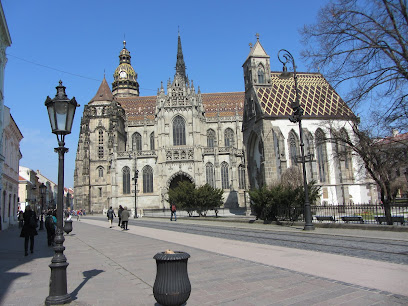
St. Elisabeth's Cathedral
Discover the breathtaking St. Elisabeth's Cathedral in Košice, a stunning Gothic masterpiece steeped in history and artistry.
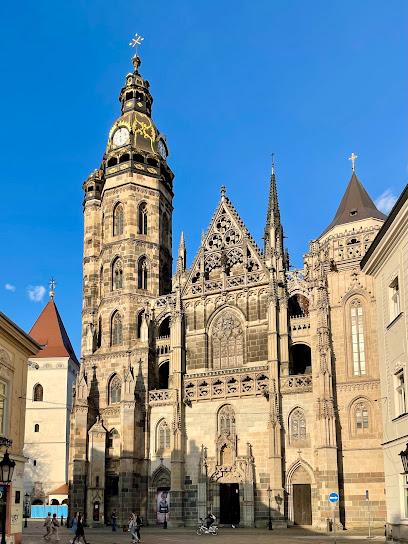
The Singing Fountain
Experience the magic of The Singing Fountain in Košice, where water and music unite in a captivating display that enchants all visitors.
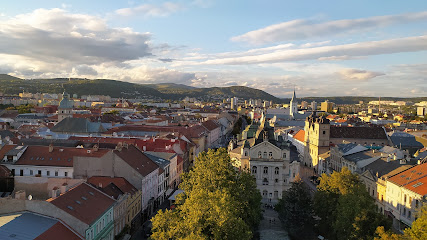
Kasárne/Kulturpark
Discover the creative spirit of Košice at Kasárne/Kulturpark, a cultural center brimming with art, performances, and community events.
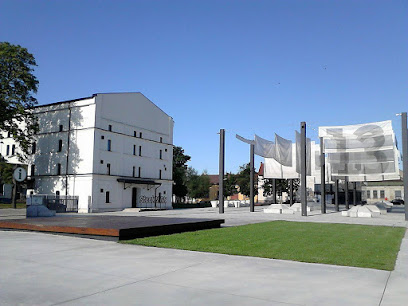
Observation Tower Košice
Experience the stunning panoramic views of Košice from the iconic Observation Tower, a must-visit attraction for every traveler.
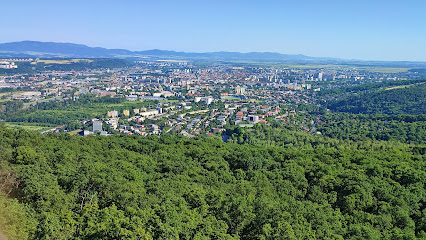
Jakab Palace
Explore the captivating Jakab Palace in Košice, a historical landmark that showcases stunning architecture and rich cultural heritage.
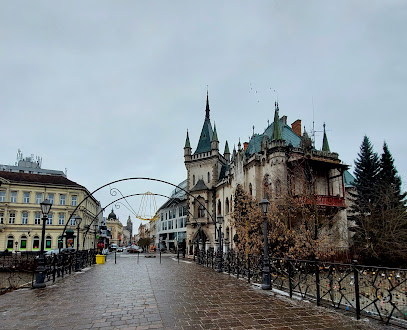
Museum of Aviation
Discover the captivating history of aviation at the Museum of Aviation in Košice-Barca, where every aircraft tells a story of innovation and adventure.
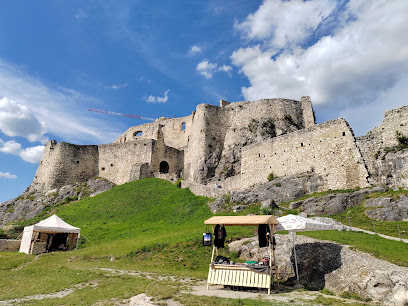
Tabačka Kulturfabrik
Discover the artistic heart of Košice at Tabačka Kulturfabrik, a cultural center that inspires creativity through art, music, and community engagement.
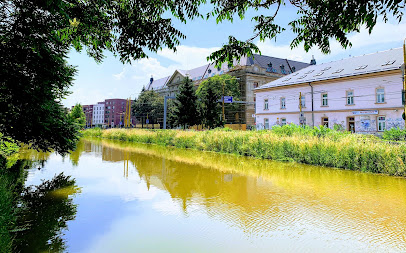
JAZZ Košice
Discover the vibrant nightlife and culinary delights at JAZZ Košice, a unique bar and restaurant offering a memorable experience in the heart of Slovakia.
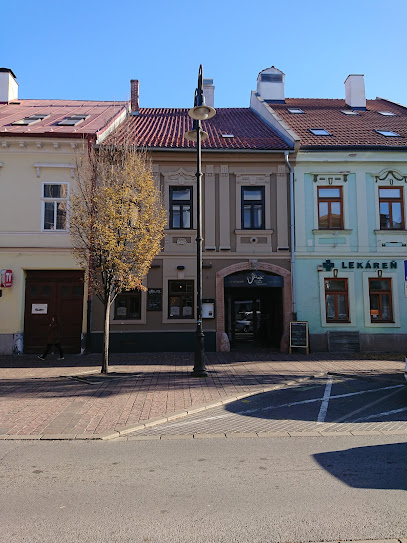
Slovak Technical Museum
Explore the rich tapestry of Slovakia's technological advancements at the Slovak Technical Museum in Košice, a captivating attraction for all ages.
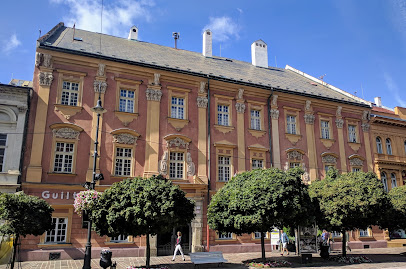
Summer bobsled
Discover the thrill of summer bobsledding in Košice, an exhilarating toboggan run perfect for families and adventure seekers alike.
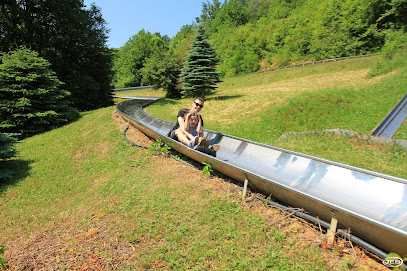
East Slovak Museum
Discover the rich history and cultural heritage of Eastern Slovakia at the East Slovak Museum in Košice, a must-visit for every traveler.
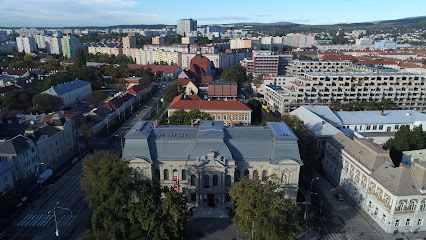
Fountain of signs
Explore the Fountain of Signs in Košice, a stunning artistic landmark blending history and culture in the heart of Old Town.
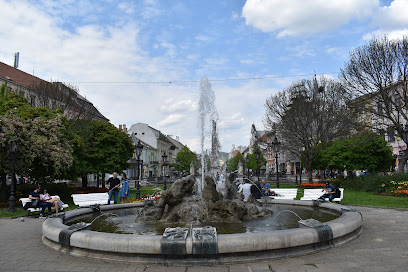
Sculpture Immaculata - Plague Column
Discover the breathtaking Sculpture Immaculata in the heart of Old Town Košice, a historical landmark symbolizing resilience and faith.
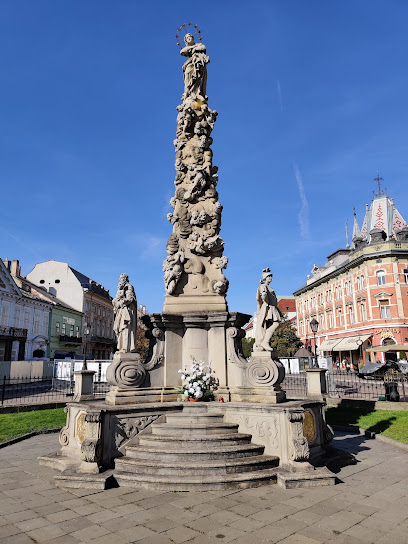
Rodosto - Memorial House of Francis II. Rákoczi
Explore the rich history of Slovakia at the Rodosto Memorial House, dedicated to the life and legacy of Francis II. Rákóczi.
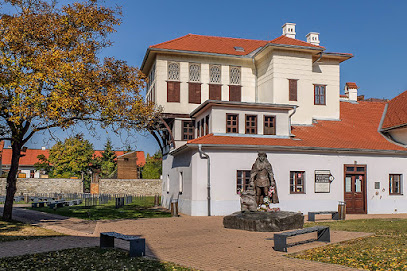
Unmissable attractions to see
Košice Zoo
Explore Košice Zoo: A family-friendly destination filled with diverse wildlife and engaging educational experiences in the heart of Kavečany.
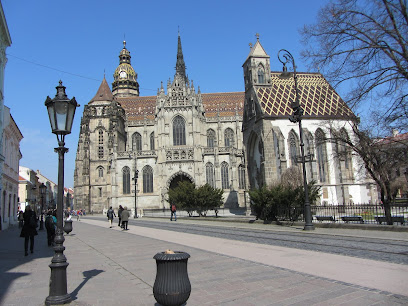
St. Elisabeth's Cathedral
Discover the beauty of St. Elisabeth's Cathedral, a stunning Gothic architectural wonder in the heart of Košice, Slovakia, rich in history and cultural significance.
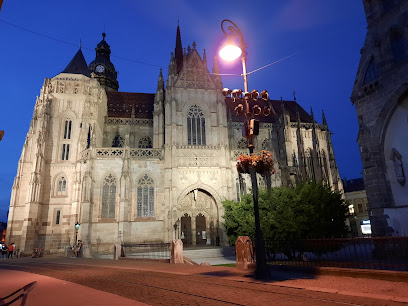
Tarn of Megyer-hegy
Explore the breathtaking beauty of the Tarn of Megyer-hegy, a serene nature preserve in Sárospatak, perfect for hiking, relaxation, and wildlife observation.
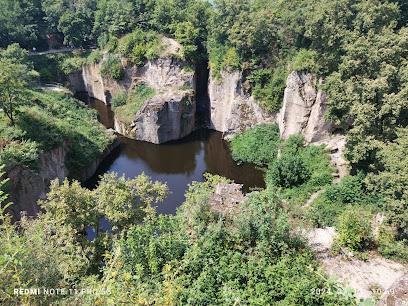
Botanical Garden UPJŠ
Explore the serene beauty of the Botanical Garden UPJŠ in Košice, a lush paradise filled with diverse plant life and tranquil pathways.
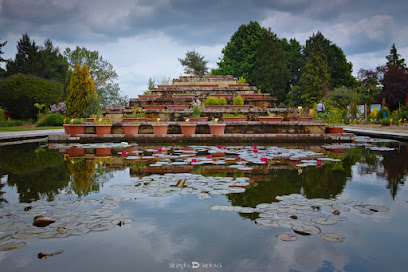
Observation Tower Košice
Experience stunning panoramic views and immerse yourself in the rich history of Košice at the Observation Tower, a must-see destination for all tourists.
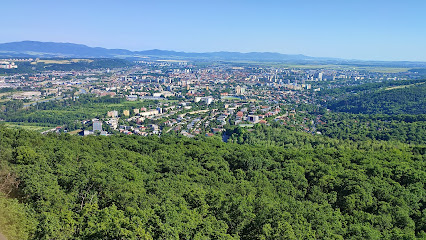
Jakab Palace
Explore the enchanting Jakab Palace in Old Town Košice, a neo-Gothic marvel that captures the essence of history and architectural splendor.
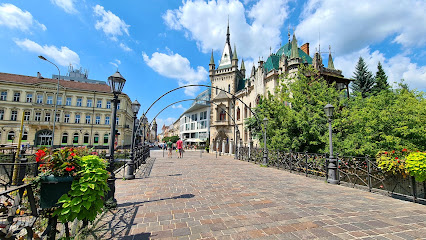
Neptune Fountain
Experience the enchanting beauty of Neptune Fountain in Prešov, a must-visit tourist attraction showcasing history and artistry.
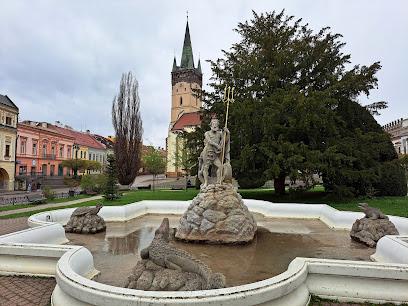
Co-Cathedral of Saint Nicholas
Explore the stunning Co-Cathedral of Saint Nicholas in Prešov, a captivating blend of Gothic architecture and rich cultural heritage that enchants every visitor.
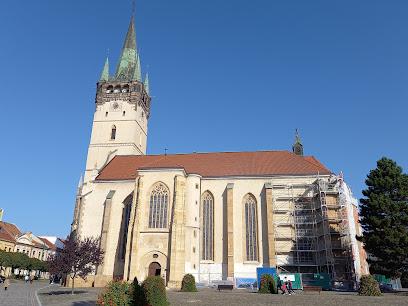
Museum of Aviation
Discover the wonders of flight at the Museum of Aviation in Košice-Barca, featuring fascinating exhibits and a collection of historic aircraft.
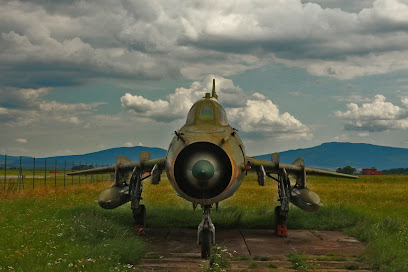
Park Barca
Explore the beauty of Park Barca in Košice, Slovakia, a serene park perfect for relaxation, picnics, and family fun amidst nature's embrace.
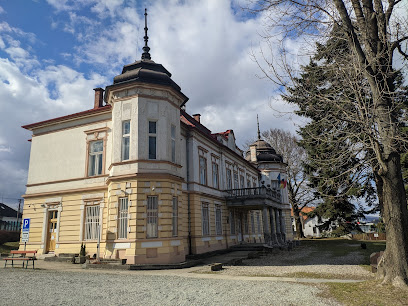
Slovak Technical Museum
Explore the Slovak Technical Museum in Košice, a fascinating journey through the evolution of technology and innovation in Slovakia.
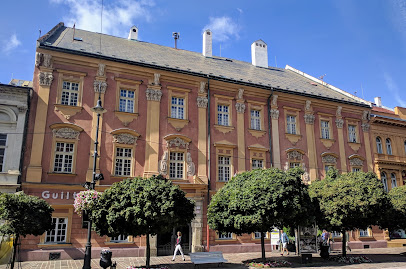
East Slovak Museum
Explore the East Slovak Museum in Košice for a captivating journey through Slovakia's rich history and cultural heritage.
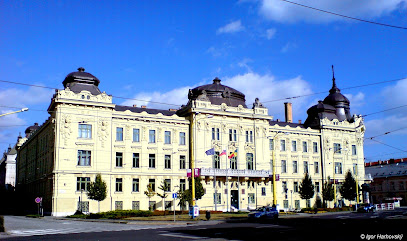
Fountain of signs
Explore the enchanting Fountain of Signs in Košice, where art and history converge to create a unique cultural experience.
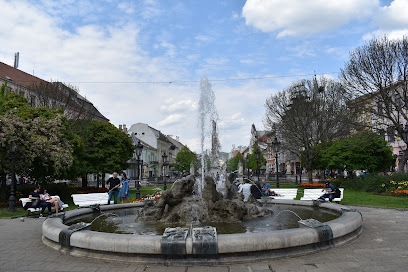
Sculpture Immaculata - Plague Column
Visit the Sculpture Immaculata in Košice, a stunning baroque plague column symbolizing faith and resilience in Slovakia's cultural heart.
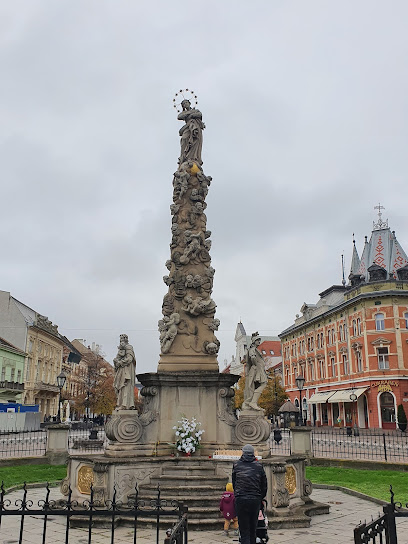
Rodosto - Memorial House of Francis II. Rákoczi
Discover the rich history of Slovakia at the Memorial House of Francis II. Rákóczi, a unique heritage museum in Košice.
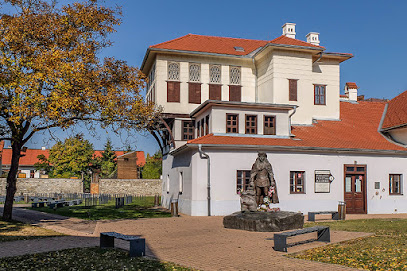
Essential places to dine
Dobré Časy
Experience the best of Slovak craft brewing at Dobré Časy in Košice – where great beers meet delicious food in a lively atmosphere.
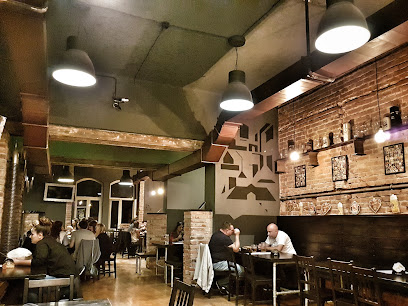
Pizzeria Zvon
Discover authentic Italian flavors at Pizzeria Zvon in Košice – where every pizza is crafted with passion and tradition.
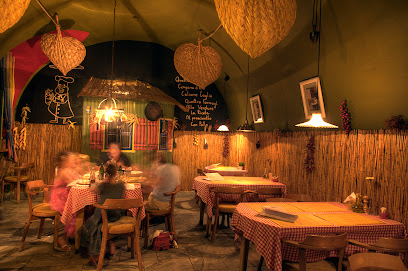
Central Pub&Restaurant
Experience authentic Slovak cuisine with a modern twist at Central Pub & Restaurant in Košice - where every meal feels like home.
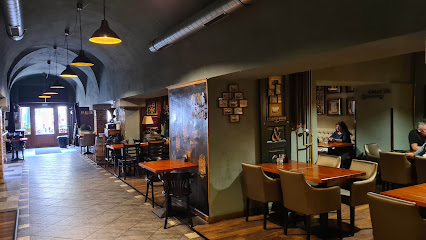
Camelot - Pilsner pub & Medieval restaurant
Discover Camelot - A unique gastropub experience in Old Town Košice with medieval flair and exceptional local beers.
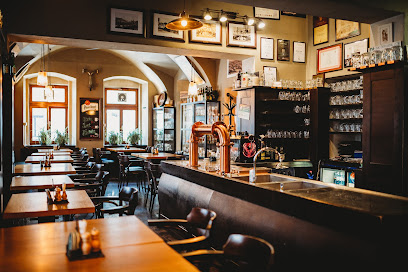
karczma MLYN
Discover authentic Slovak flavors at Karczma MLYN in Košice—where tradition meets taste in a charming atmosphere.
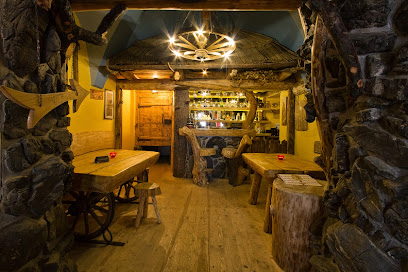
Pilsner Urquell Pub Aupark Košice
Discover the heart of Czech dining at Pilsner Urquell Pub Aupark Košice – where authentic flavors meet vibrant atmosphere.
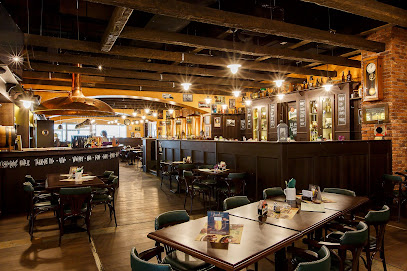
La Hacienda
Experience authentic Mexican flavors at La Hacienda in Old Town Košice – where every meal feels like a fiesta.
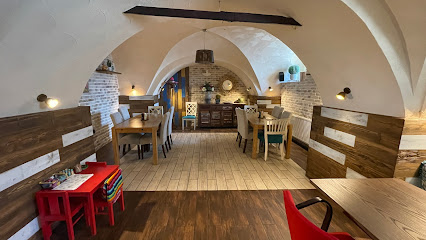
Rosto Steak House
Experience the finest steaks in Košice at Rosto Steak House – where every bite is an unforgettable journey into flavor.
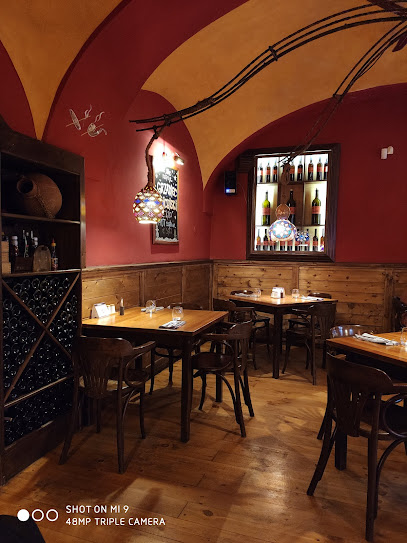
Republika Východu
Experience authentic Slovak cuisine at Republika Východu in Košice - a delightful fusion of tradition and modern bistro charm.
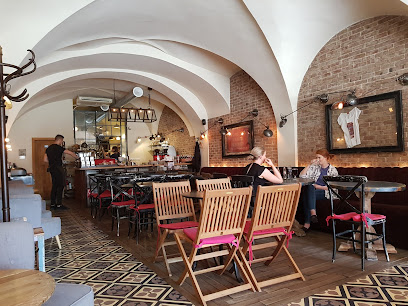
Pub u Kohúta
Discover traditional Slovak dishes and local brews at Pub u Kohúta in Old Town Košice – where culture meets cuisine.
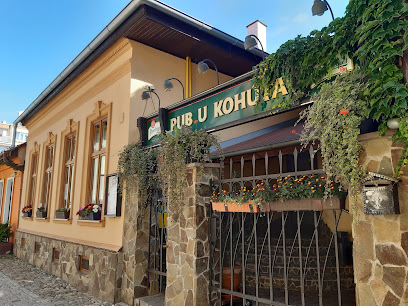
Slávia
Experience authentic Slovak cuisine at Slávia Restaurant & Café in Old Town Košice - where tradition meets taste.
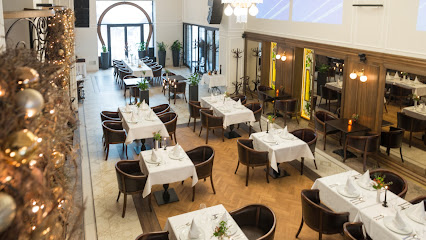
U Seburgiho
Discover authentic Slovak cuisine at U Seburgiho in Košice's lively gastropub scene.
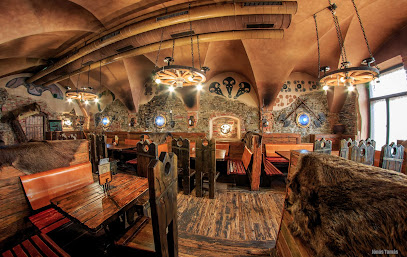
Pivovar Hostinec
Experience authentic Slovak flavors at Pivovar Hostinec – where local brews meet delicious cuisine in Košice.
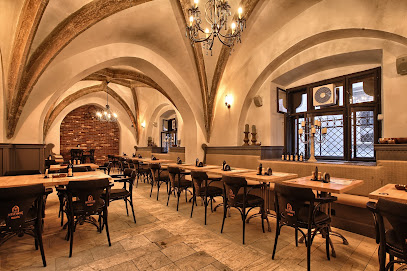
Stará sýpka
Discover authentic Slovak cuisine at Stará sýpka in Košice – where tradition meets modern culinary art.
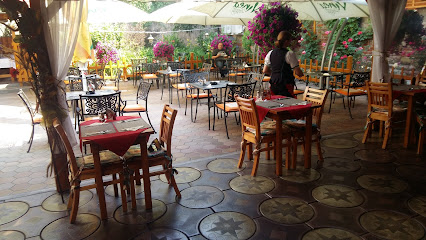
GESTO cafe & brunch
Experience the vibrant flavors of Košice at GESTO Cafe & Brunch—your go-to spot for delicious meals in a cozy setting.
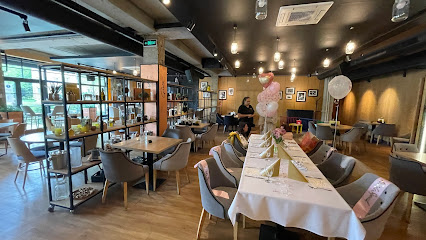
Markets, malls and hidden boutiques
Aupark Košice
Discover the ultimate shopping experience at Aupark Košice, where fashion meets flavor in the heart of Slovakia.
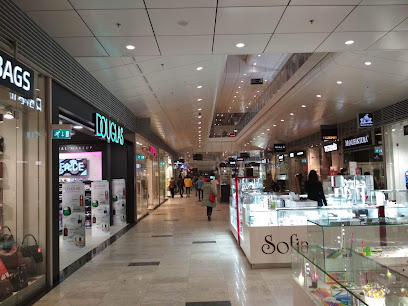
OC Optima
Explore OC Optima, Košice's vibrant shopping mall with diverse stores, delicious dining options, and entertainment for the whole family.
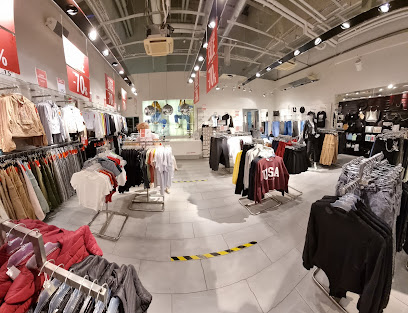
Gallery Shopping Center
Explore the Gallery Shopping Center in Košice for an unforgettable shopping and dining experience amidst a lively atmosphere.
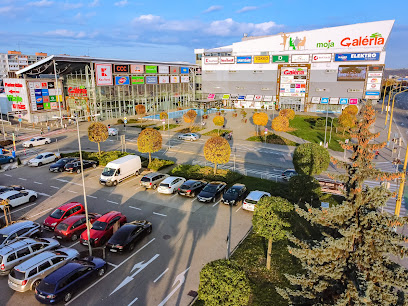
Obchodné centrum Cassovia
Explore Obchodné centrum Cassovia, a bustling shopping mall in Košice, featuring diverse stores, dining options, and family-friendly entertainment.
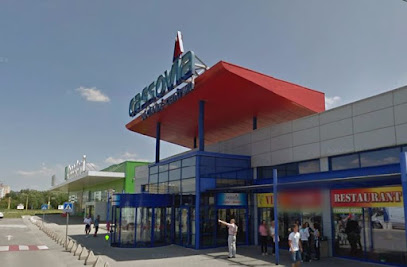
OD Dargov Košice
Experience the vibrant shopping scene at OD Dargov Košice, where retail, dining, and entertainment come together in a lively atmosphere.
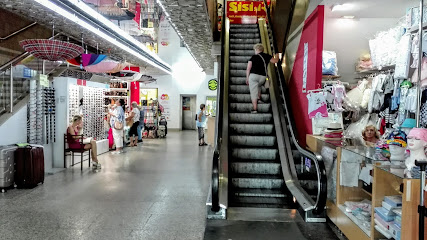
OD Urban
Explore OD Urban in Košice: A vibrant shopping destination with diverse retail, dining, and entertainment options for every traveler.
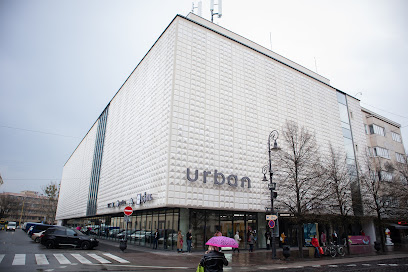
Clematis Coffee & Tea Shop
Experience the charm of Clematis Coffee & Tea Shop in Old Town Košice, where quality brews and a cozy atmosphere await every visitor.
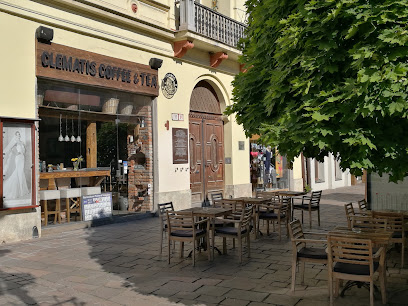
Galéria Košice
Explore Galéria Košice, a vibrant shopping mall offering a mix of local culture, dining options, and entertainment in the heart of Slovakia's second largest city.
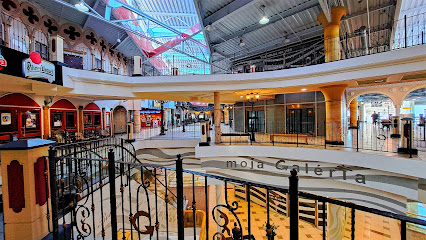
Flying Tiger Copenhagen
Explore the vibrant and unique offerings of Flying Tiger Copenhagen, a must-visit gift shop in Košice for delightful souvenirs and creative finds.
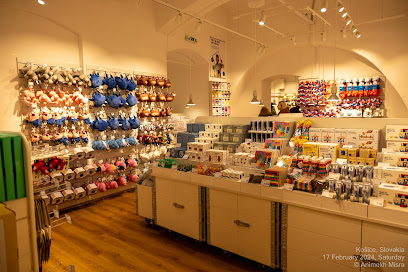
H&M
Explore stylish and affordable clothing for the whole family at H&M in Košice, a top destination for fashion-forward shoppers.
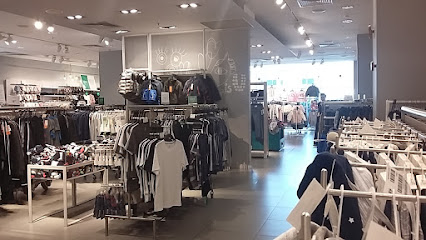
Bershka
Explore the latest trends in fashion at Bershka in Košice, offering stylish clothing and accessories for men and women.
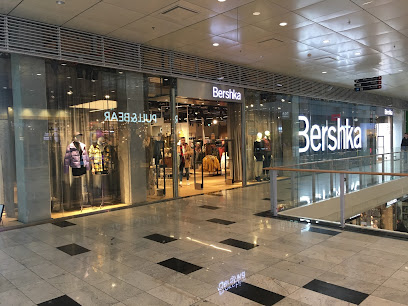
Notino Košice – Aupark
Explore Notino Košice – Aupark, your ultimate destination for luxury perfumes and beauty products in the heart of Košice.
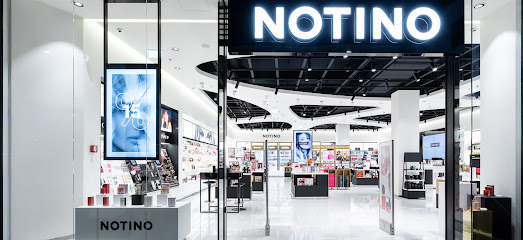
KERE
Explore KERE in Košice for unique, locally designed clothing that embodies Slovakian culture and sustainable fashion.
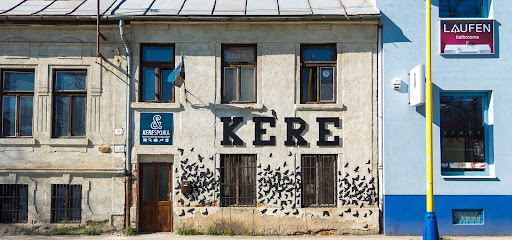
Vintage Shop
Explore a vintage paradise in Košice, where unique clothing and accessories await to tell their stories.
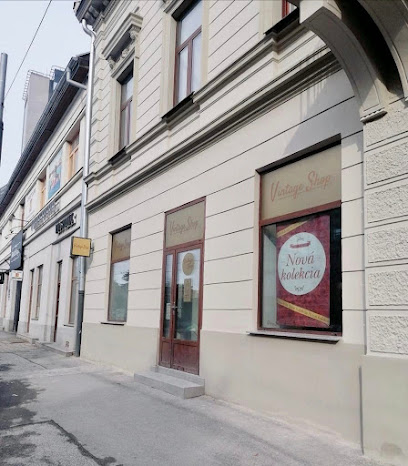
Pull&Bear
Explore contemporary fashion and youthful trends at Pull&Bear, a premier clothing store in the vibrant city of Košice.
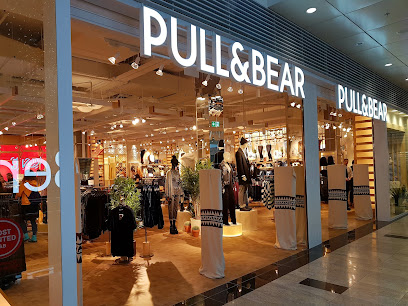
Essential bars & hidden hideouts
Dobré Časy
Experience the vibrant atmosphere of Dobré Časy, a top brewpub in Košice, offering craft beers and delicious pub fare in a cozy setting.
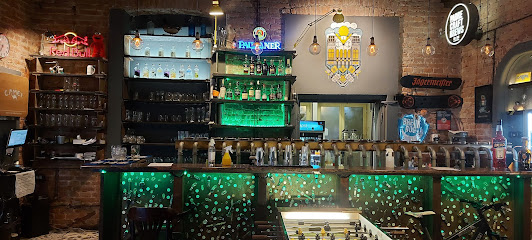
Camelot - Pilsner pub & Medieval restaurant
Experience the medieval charm at Camelot - Pilsner pub & Medieval restaurant, where hearty Slovak cuisine meets a vibrant atmosphere.
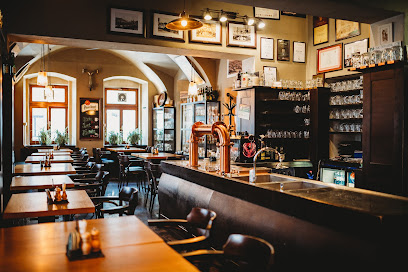
U Seburgiho
Discover U Seburgiho, a cozy gastropub in Košice, where traditional Slovak flavors meet modern dining in a charming setting.
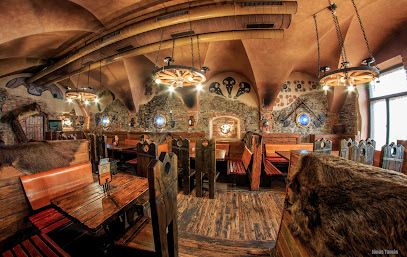
JAZZ Košice
Discover the vibrant bar and restaurant scene at JAZZ Košice, where delightful food meets an energetic atmosphere for all occasions.
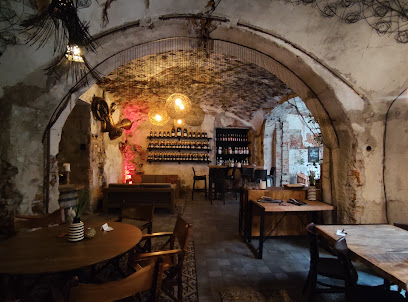
Zlatý Dvor
Experience the vibrant nightlife of Košice at Zlatý Dvor, a premier hookah and cocktail bar with an inviting atmosphere and exquisite flavors.
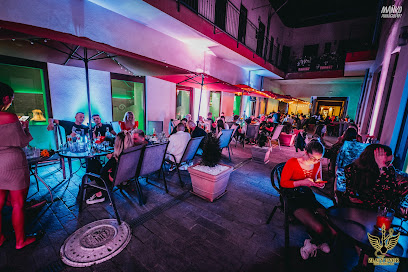
Jekyll&Hyde cafe bar
Experience the quirky charm and vibrant nightlife at Jekyll&Hyde Cafe Bar in the heart of Košice, where every drink tells a story.
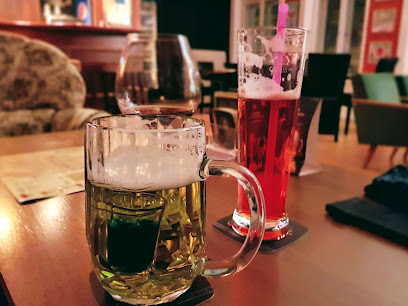
Irish Pub Diesel
Discover Irish hospitality and traditional fare at Irish Pub Diesel in Košice, where every meal is a celebration of flavor and culture.
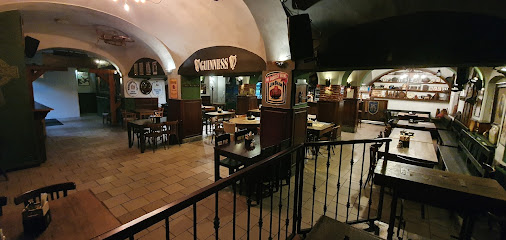
Pokhoi
Experience the vibrant atmosphere and local flavors at Pokhoi, the premier bar destination in Košice, Slovakia.
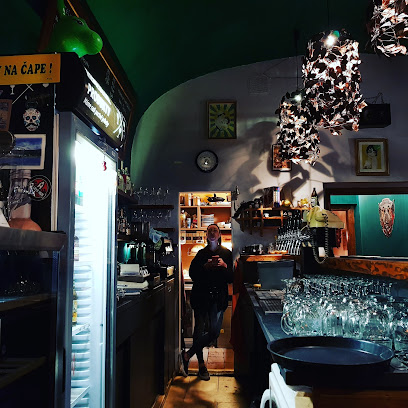
Cuba Libre Rum & Cigar House Košice
Experience the vibrant atmosphere and exquisite flavors of Cuba in Košice at Cuba Libre Rum & Cigar House - a unique bar for rum and cigar enthusiasts.
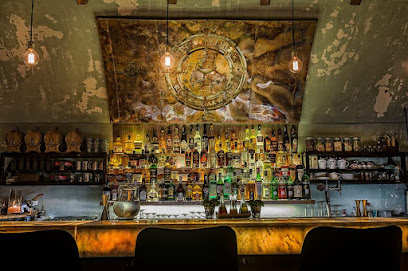
Red Nose Pub
Discover the vibrant atmosphere of Red Nose Pub, a brewpub in Old Town Košice offering craft beers and hearty local cuisine.
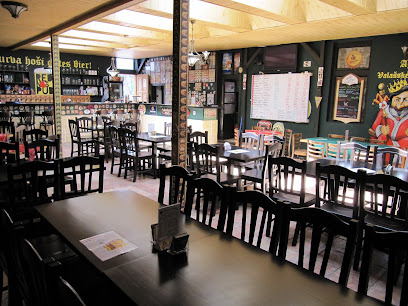
Cubano Bar - shot - Milkshake - Hookahs
Discover the lively charm of Cubano Bar in Košice, where delicious drinks and a vibrant atmosphere come together for an unforgettable experience.
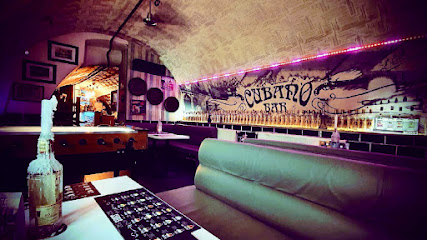
FEST Bar Košice
Discover the lively nightlife at FEST Bar Košice, where great drinks and an energetic atmosphere await you in the heart of the city.
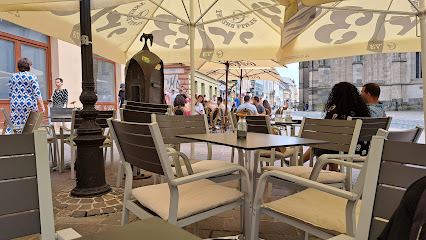
Little Havana
Experience the vibrant atmosphere of Little Havana, a lively bar in Old Town Košice serving delicious cocktails and live Cuban music.
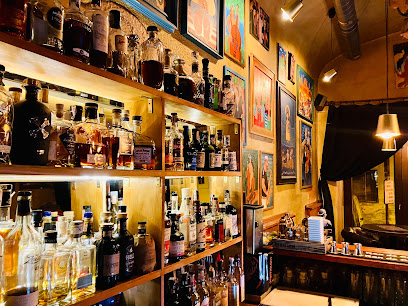
THE GRAPES
Discover the vibrant nightlife at The Grapes, a chic cocktail bar and lounge in the heart of Košice, offering exquisite drinks and lively atmosphere.
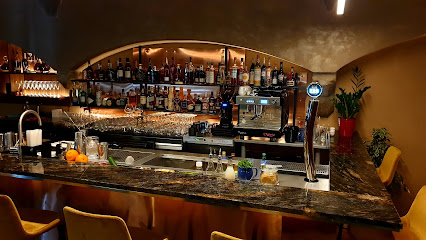
Local Phrases
-
- HelloAhoj
[ahoy] - GoodbyeDovidenia
[dovee-denyah] - YesÁno
[ah-no] - NoNie
[nee-eh] - Please/You're welcomeProsím
[pro-seem] - Thank youĎakujem
[dyah-koo-yem] - Excuse me/SorryPrepáčte
[preh-pahch-teh] - How are you?Ako sa máte?
[ah-ko sa mah-teh] - Fine. And you?Dobre. A vy?
[doh-breh. ah vee] - Do you speak English?Hovoríte po anglicky?
[hoh-voh-ree-teh poh ahng-leets-kee] - I don't understandNerozumiem
[neh-roh-zoo-myem]
- HelloAhoj
-
- I'd like to see the menu, pleaseChcel by som vidieť jedálny lístok, prosím
[kh-tsel bee sohm vee-dyet yeh-dahl-nee lees-tohk, pro-seem] - I don't eat meatJa nejem mäso
[yah neh-yem mah-soh] - Cheers!Na zdravie!
[nah zdrah-vee-eh] - I would like to pay, pleaseChcel by som zaplatiť, prosím
[kh-tsel bee sohm zah-pla-teet, pro-seem]
- I'd like to see the menu, pleaseChcel by som vidieť jedálny lístok, prosím
-
- Help!Pomoc!
[poh-mohts] - Go away!Choď preč!
[khohd prech] - Call the Police!Volaj políciu!
[voh-la y po-leets-yoo] - Call a doctor!Volajte lekára!
[voh-la-yteh leh-kah-rah] - I'm lostStratil som sa
[strah-teel sohm sah] - I'm illSom chorý
[sohm khoh-ree]
- Help!Pomoc!
-
- I'd like to buy...Chcel by som kúpiť...
[kh-tsel bee sohm koo-peeht] - I'm just lookingLen sa pozerám
[len sah poh-ze-rahm] - How much is it?Koľko to stojí?
[kohl-koh toh stoh-yee] - That's too expensiveTo je príliš drahé
[toh yeh pree-lish dra-heh] - Can you lower the price?Viete znížiť cenu?
[vye-teh znee-zheet tseh-noo]
- I'd like to buy...Chcel by som kúpiť...
-
- What time is it?Koľko je hodín?
[kohl-koh yeh hoh-deen] - It's one o'clockJe jedna hodina
[yeh yehd-nah hoh-dee-nah] - Half past (10)Pol dvanástej
[pohl dvah-nahs-teh] - MorningRáno
[rah-noh] - AfternoonPopoludní
[poh-poh-loo-dnee] - EveningVečer
[veh-cher] - YesterdayVčera
[vche-rah] - TodayDnes
[dnes] - TomorrowZajtra
[zai-tra] - 1Jedna
[yehd-nah] - 2Dve
[dveh] - 3Tri
[tree] - 4Štyri
[shtee-ree] - 5Päť
[paht] - 6Šesť
[shest] - 7Sedem
[seh-dem] - 8Osem
[oh-sem] - 9Deväť
[deh-vat] - 10Desať
[deh-saht]
- What time is it?Koľko je hodín?
-
- Where's a/the...?Kde je...
[kdeh yeh] - What's the address?Aká je adresa?
[ah-kah yeh ah-dreh-sah] - Can you show me (on the map)?Môžete mi ukázať (na mape)?
[moh-zheh-teh mee oo-kah-zat nah mah-peh] - When's the next (bus)?Kedy je ďalší (autobus)?
[keh-dee yeh dyahl-shee ow-toh-boos] - A ticket (to ....)Lístok (do ...)
[lees-tohk doh]
- Where's a/the...?Kde je...
History of Košice
-
Košice, known historically as Kassa, was first mentioned in 1230. It quickly grew into a significant medieval town due to its strategic location on the trade routes connecting Central Europe with the Balkans and the Black Sea. The town received its first town privileges in 1290, establishing it as an important urban center in the Kingdom of Hungary.
-
The 14th and 15th centuries marked a flourishing period for Košice, exemplified by the construction of the Gothic St. Elisabeth Cathedral. Completed in 1508, it remains the largest church in Slovakia and a stunning example of Gothic architecture. Košice also became the first town in Europe to be granted a coat of arms, awarded by King Louis I in 1369.
-
In the early 15th century, Košice was involved in the Hussite Wars, which brought turmoil but also fortification improvements. The Renaissance period saw further cultural and architectural advancements, with the influx of Italian and German artisans contributing to the city's cultural fabric.
-
The 16th and 17th centuries were tumultuous, as Košice faced repeated Turkish invasions and became a battleground for Habsburg and Ottoman forces. Despite these challenges, the city maintained its economic and cultural significance, eventually becoming a key administrative center under Habsburg rule.
-
The 18th and 19th centuries brought enlightenment ideals and industrialization to Košice. The city's infrastructure expanded with the construction of railways and factories, transforming it into an industrial hub. Education and the arts also flourished, with the establishment of various institutions and cultural societies.
-
Košice experienced significant upheaval during the World Wars. After World War I, it became part of the newly formed Czechoslovakia. The interwar period saw a mix of economic growth and political tension. During World War II, the city was occupied by Hungary, and its Jewish population faced persecution and deportation.
-
Following World War II, Košice was restored to Czechoslovakia and underwent significant reconstruction. The communist period brought industrial growth but also political repression. The city became a center for heavy industry, with the establishment of the East Slovak Ironworks in the 1950s.
-
The Velvet Revolution of 1989 marked the end of communist rule in Czechoslovakia, leading to democratic reforms and the eventual split into Slovakia and the Czech Republic in 1993. Košice has since embraced its historical heritage while modernizing its infrastructure and economy. The city was named the European Capital of Culture in 2013, highlighting its rich cultural and historical tapestry.
Košice Essentials
-
Košice is accessible via several modes of transportation. The city has its own international airport, Košice International Airport (KSC), which is approximately 6 kilometers from the city center. Direct flights are available from major European cities. Alternatively, you can reach Košice by train, as it is a significant rail hub with connections to Bratislava, Prague, Budapest, and other cities. Buses are another option, with routes connecting Košice to various Slovak and European destinations. For those driving, Košice is accessible via major highways.
-
Košice offers a well-developed public transportation system, including buses, trams, and trolleybuses. Tickets can be purchased at kiosks, via mobile apps, or directly from drivers (cash only). Taxis are readily available and relatively inexpensive, but it is advisable to use reputable companies or ride-hailing apps. Car rentals are also an option for those wishing to explore beyond the city. Košice is a pedestrian-friendly city, especially in the historic center, making walking a pleasant means of getting around.
-
The official currency in Slovakia is the Euro (EUR). Credit and debit cards are widely accepted in hotels, restaurants, and shops. However, it is advisable to carry some cash for smaller establishments and markets. ATMs are plentiful throughout Košice, and currency exchange services are available at the airport, in banks, and in exchange offices in the city center.
-
Košice is generally a safe city for tourists. However, like any urban area, it is wise to take standard precautions. Avoid dark and deserted areas at night and keep an eye on your belongings in crowded places. Areas around the train and bus stations can sometimes attract pickpockets, so stay vigilant. It is always best to stay aware of your surroundings and follow local advice.
-
In case of emergency, dial 112 for immediate assistance, which is the general emergency number in Slovakia. There are several hospitals and clinics in Košice, with the University Hospital of L. Pasteur being the largest. Pharmacies are widely available for minor medical needs. It is recommended to have travel insurance that covers medical emergencies.
-
Fashion: Do dress comfortably and according to the weather. When visiting religious sites, dress modestly. Avoid overly revealing clothing. Religion: Do respect local customs and traditions. When visiting churches, be quiet and respectful. Public Transport: Do validate your ticket upon entering buses, trams, and trolleybuses. Don’t forget to give up your seat to elderly passengers. Greetings: Do greet people with a handshake. A friendly 'Dobrý deň' (Good day) goes a long way. Eating & Drinking: Do try local dishes like halušky and goulash. Don’t leave a tip on the table; instead, hand it directly to the waiter.
-
To experience Košice like a local, visit the Hlavná Ulica (Main Street) with its many cafes, restaurants, and shops. Attend a performance at the State Theatre or explore the local art scene at the East Slovak Gallery. Don’t miss the historic sites like St. Elisabeth Cathedral and the Košice Peace Marathon, the oldest marathon in Europe. For a unique local experience, consider visiting the markets, such as the Dominikánske námestie, where you can buy fresh produce and local products.
Trending Landmark in Košice
-
Košice Zoo
-
St. Elisabeth's Cathedral
-
The Singing Fountain
-
Kasárne/Kulturpark
-
Observation Tower Košice
-
Jakab Palace
-
Museum of Aviation
-
Tabačka Kulturfabrik
-
JAZZ Košice
-
Slovak Technical Museum
-
Summer bobsled
-
East Slovak Museum
-
Fountain of signs
-
Sculpture Immaculata - Plague Column
-
Rodosto - Memorial House of Francis II. Rákoczi
Nearby Cities to Košice
-
Things To Do in Prešov
-
Things To Do in Uzhhorod
-
Things To Do in Miskolc
-
Things To Do in Poprad
-
Things To Do in Nyiregyhaza
-
Things To Do in Mukachevo
-
Things To Do in Eger
-
Things To Do in Zakopane
-
Things To Do in Salgotarjan
-
Things To Do in Debrecen
-
Things To Do in Tarnow
-
Things To Do in Banská Bystrica
-
Things To Do in Satu Mare
-
Things To Do in Rzeszow
-
Things To Do in Martin













